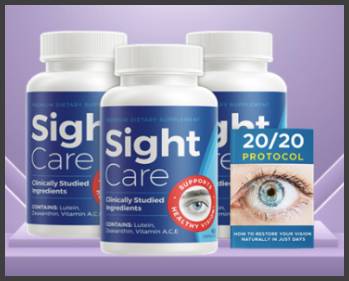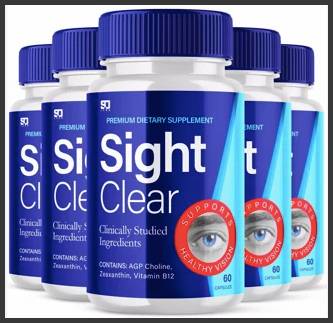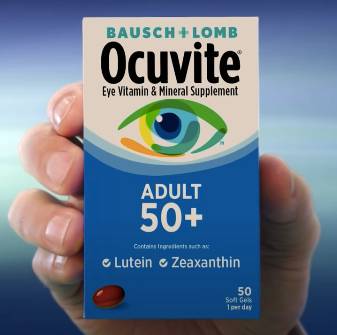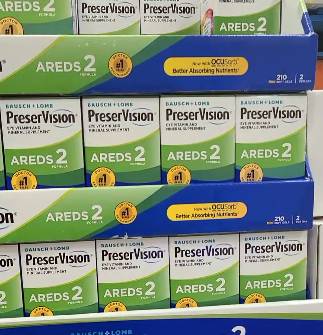When it comes to eye health, many of us find ourselves exploring various supplements to maintain or even improve our vision. After hearing about Sight Care 20/20 Vision Support Vitamins, I decided to give it a try.
You can easily purchase this product online from the official Sight Care website, or check out other retailers that stock the supplement.
In this article, I’ll walk you through my experience, the pros and cons of the product, how it compares to other similar supplements, and whether or not it truly delivers on its promises.
My Experience With Sight Care Supplement

When I first heard about Sight Care, I was drawn to the idea that it could help improve my vision and support overall eye health.
Spending long hours in front of a screen had left my eyes feeling strained, so I was eager to give this supplement a try.
The claims were bold: improving eyesight, supporting 20/20 vision, and offering nutrients that could protect against future vision problems.
After taking Sight Care for a little over two months, I didn’t experience any noticeable improvements in my vision. I had hoped for at least a slight enhancement in clarity or reduction in eye fatigue, but it didn’t happen.
The supplement was easy to take—just two capsules with water in the morning—and contained ingredients like lutein and quercetin, which are known to benefit eye health. However, despite taking it regularly, there was no real change in how my eyes felt or how well I could see.
One thing that really soured the experience for me was the customer service. I had issues with my order and ended up receiving fewer bottles than I paid for, which was frustrating.
On top of that, their money-back guarantee felt like a trap. By the time I realized the product wasn’t working for me, the refund window had passed.
In the end, while it was comforting to know I was taking nutrients good for my eyes, I can’t say Sight Care lived up to its promises. It wasn’t worth the high price or the customer service headaches.
The Pros of Using Sight Care Supplement
Let’s start by looking at the benefits I noticed during my time taking Sight Care:

- Easy to Incorporate Into Daily Routine: The capsule form made it simple to take the supplement every day. There were no complicated instructions; it was as easy as taking two pills with water in the morning.
- Contains Eye-Healthy Nutrients: Ingredients like lutein, quercetin, and alpha-lipoic acid are known for their potential benefits to eye health. They are antioxidants that help reduce oxidative stress, which can lead to eye diseases like macular degeneration.
- General Nutrient Support: Even though I didn’t notice an improvement in my vision, I did feel like I was getting some general nutrient support. While these supplements didn’t necessarily work for my eyesight, I appreciated the inclusion of ingredients that have some overall health benefits.
The Cons of Using Sight Care Supplement
While the pros were promising, there were certainly some drawbacks worth noting. Based on my own experience and those of others who have tried it, here are some significant cons:
- Lack of Results in Vision Improvement: After taking the supplement for over two months, I honestly didn’t notice any improvements in my vision. The product claims that you need to take it for at least 30 days to notice any differences, but by the time I had gone through two bottles, there was no change. I was hoping for at least a slight improvement in clarity or focus, but nothing substantial happened.
- Customer Service Issues: A common complaint that I came across (and personally experienced) was the difficulty in dealing with the company’s customer service. When I initially ordered four bottles, I only received two and had to jump through hoops to get in touch with them. I ended up paying $108 for just two bottles, which felt like a huge waste of money.
- Dubious Money-Back Guarantee: The company promotes a 100% money-back guarantee, but as I (and many other users) found out, it’s not as straightforward as it sounds. If you wait too long—like the recommended 180-day period—your refund window might expire before you even finish giving the product a proper try. It felt misleading, especially since you need time to see if the product works.
Sight Care Tips
Maintaining your supplement intake is straightforward, but it’s important to remember that supplements alone aren’t a magic fix for vision issues. Here are some tips to maximize your eye health:
- Consistency is Key: Take the supplement daily as instructed to give it the best chance to work.
- Pair with a Healthy Diet: Ensure your diet is rich in vitamin A, C, and other eye-healthy nutrients to support the supplement’s effects.
- Eye Exercises: Incorporate simple eye exercises into your routine to strengthen eye muscles and alleviate strain from prolonged screen use.
Comparing Sight Care To Other Vision Supplements
When it comes to choosing the best vision supplement, there are many products available that claim to support eye health and improve vision. While Sight Care makes bold promises, it’s essential to compare it to other well-known supplements to see how it measures up.
Here’s a closer look at how Sight Care compares to three popular alternatives: Lutenol, Ocuvite, and PreserVision.
- Sight Care Vs. Lutenol
Lutenol is a widely recognized supplement designed to support eye health, particularly as we age. Like Sight Care, it contains lutein and zeaxanthin, two essential nutrients for protecting the eyes from oxidative stress and blue light damage.
However, one of the key differences is the transparency of ingredients. Lutenol provides a clear breakdown of what’s inside, and the product matches its advertising. In contrast, Sight Care has faced some criticism for discrepancies between the advertised ingredients (such as quercetin and alpha-lipoic acid) and what’s actually in the formula.
This inconsistency makes it harder to trust Sight Care when compared to Lutenol, which also has a better track record of customer satisfaction.
- Sight Care Vs. Ocuvite

Ocuvite, developed by Bausch + Lomb, is a trusted name in eye care, particularly for individuals looking to protect their eyes from aging and the effects of prolonged screen exposure.
Ocuvite is specifically formulated with nutrients that focus on replenishing vital eye nutrients lost over time, such as lutein, omega-3, and zinc.
Compared to Sight Care, Ocuvite is significantly more affordable and is more widely available in stores and online.
While Sight Care claims to cover a broad spectrum of eye health benefits, Ocuvite focuses on maintaining healthy vision, particularly in older adults.
If you’re looking for targeted support, Ocuvite offers a more proven, specialized formula, whereas Sight Care feels more like a general-purpose supplement with inconsistent results.
- Sight Care Vs. PreserVision

PreserVision is one of the most recommended supplements by ophthalmologists for age-related macular degeneration (AMD).
Unlike Sight Care, which offers a more generic approach to eye health, PreserVision is specifically designed to address the needs of those with or at risk of macular degeneration.
Its formula is based on extensive research, including the well-known AREDS (Age-Related Eye Disease Study) trials, which makes it a highly trusted product in the medical community.
If you’re dealing with specific eye conditions, PreserVision is a more reliable choice, as it offers a targeted solution backed by scientific studies.
On the other hand, Sight Care’s broader claims, paired with a lack of clinical evidence, make it less credible in comparison.
Is Sight Care Worth It?
Based on my personal experience and the reviews I’ve come across, Sight Care supplement may not live up to its claims of significantly improving vision. While it does contain nutrients that are generally good for eye health, the lack of results after several months of consistent use was disappointing.
If you’re looking for a supplement that might help support your eye health in the long run, it could be worth a try, but don’t expect drastic improvements in vision clarity or acuity. The high price point and poor customer service are additional drawbacks that make it hard to fully recommend this product.
In conclusion, you can purchase Sight Care directly from their official website or check other online retailers, but I would advise caution before investing in multiple bottles based on my and others’ experiences.
Also Read: My Thoughts On Balance of Nature Supplements.
Frequently Asked Questions (FAQ)
There isn’t a definitive “number one” vision supplement, as it depends on individual needs. However, supplements like PreserVision and Ocuvite are often highly recommended by ophthalmologists for specific eye conditions, particularly age-related macular degeneration.
Eye supplements can support eye health, particularly if you have a deficiency in key nutrients like lutein, vitamin A, and zinc. However, results vary, and supplements alone may not be enough to significantly improve vision without a balanced diet and lifestyle.
Sight Care is a vision support supplement that claims to improve eyesight and overall eye health. It contains ingredients like lutein and quercetin, which are known for their eye-protecting properties, though some users have reported discrepancies in the actual ingredient list.
While supplements can provide nutrients that support eye health, they are unlikely to drastically improve eyesight on their own. For the best results, supplements should be combined with a healthy diet, proper eye care, and regular check-ups with an eye doctor.
Final Word: Should You Buy Sight Care?
In my opinion, based on both my personal experience and a review of others’ feedback, I wouldn’t recommend investing heavily in Sight Care unless you’re just looking for general eye health support without expecting noticeable improvements in your vision.
If you do choose to buy it, make sure to purchase from their official website and be aware of their tricky refund policy. Otherwise, consider exploring other supplements that may offer better results and transparency.



